Having overcome her own difficulties with a stoma, and going on to swim the English Channel, Gill Castle set up a charity to help women in Kenya move on with their lives after a colostomy. The BBC joined her for a trip to Africa to meet some of those she is working with.

Sesita
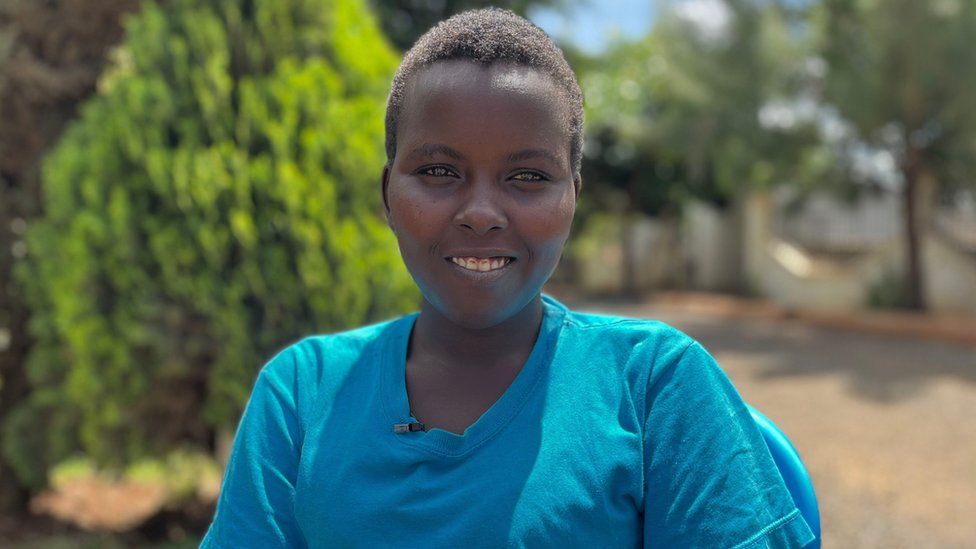
Sixteen-year-old Sesita is from a tribe in the Maasai Mara nature reserve.
She is from a poor, rural area. She has not had any access to schooling and speaks in her tribal language.
At a young age she was married to a much older man and gave birth for the first time last year, when she was 15.
Her baby died and she was so badly injured that she had to have two stomas to divert her faeces and urine out through her abdomen.
Sesita finds it hard to talk about what happened to her without crying.
But she says she wanted to tell her story so that people could understand that help is needed for women like her.
She has undergone a number of surgeries at the Gynocare Hospital in Eldoret.
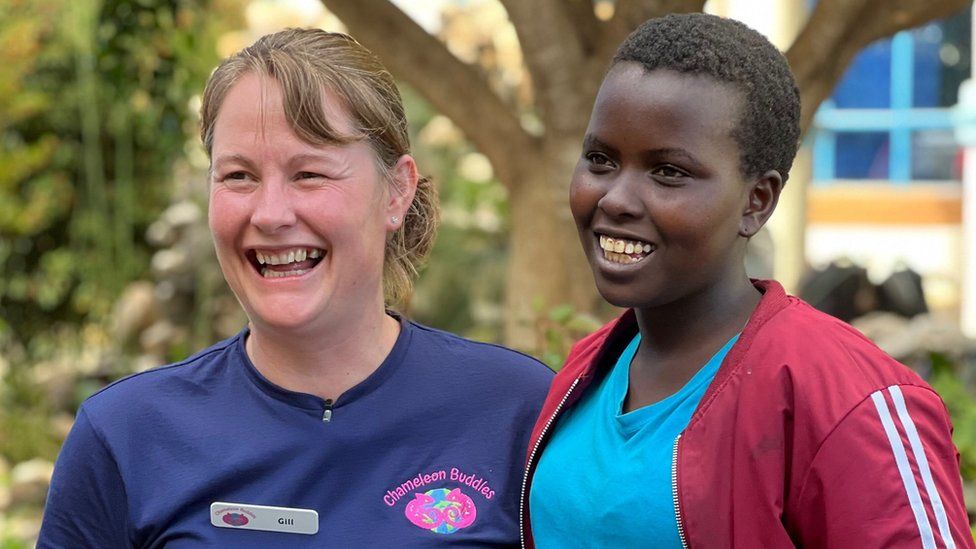
The whitewashed building is a beacon at the end of long dirt track.
The road is lined with crude concrete buildings with metal roofs that house everything from clothes shops to cafes and butchers.
Cattle and chickens wander alongside Kenyans of all ages in the glaring sun.
Gill, from Alnwick, found out about the plight of Kenyan women after being contacted by an American Charity called Beyond Fistula which works with the hospital.
A fistula is an internal hole and can be the result of childbirth.
It is a condition which often affects the poorest women who cannot afford healthcare, so the hospital offers the surgery for free.
Gill ended up with her stoma after suffering a fistula and a fourth degree tear between her rectum and vagina when giving birth to her son.
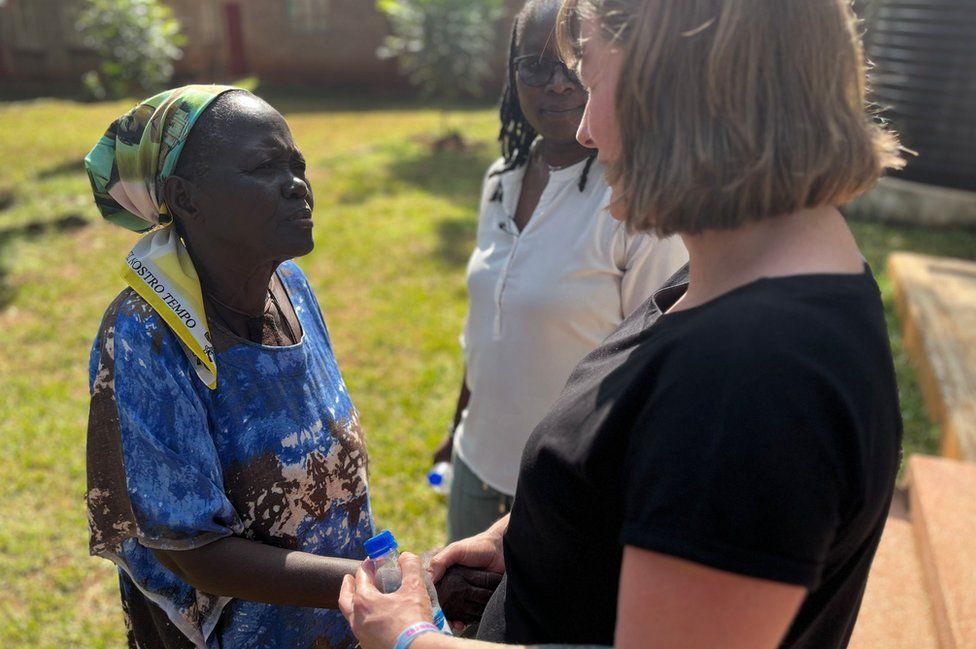
She first met Sesita, lying in a hospital bed after her stoma surgery, when she visited the hospital in July 2022.
“I went in and said to her – I’ve got a stoma, just like you, and I lifted up my shirt and showed her my stoma bag and her whole face lit up,” Gill says.
“She was saying to the women in the ward ‘just like me, just like me’, and I thought if someone had come to me just after my surgery when I felt lonely, what that would have meant to me.
“It was pure joy on her face.”
Sesita has been returned to her family and in 2024 she will be trained as a seamstress back at the hospital.
In the charity workshop where the women learned to make their own sanitary pads, she excelled and beamed with pride.
Gill says Sesita’s story is very difficult to come to terms with from a Western perspective.
But, she said, “we are making her life better, she is in a better place now and by all these different teams working together we are enabling her to move on from that trauma.”

Rose
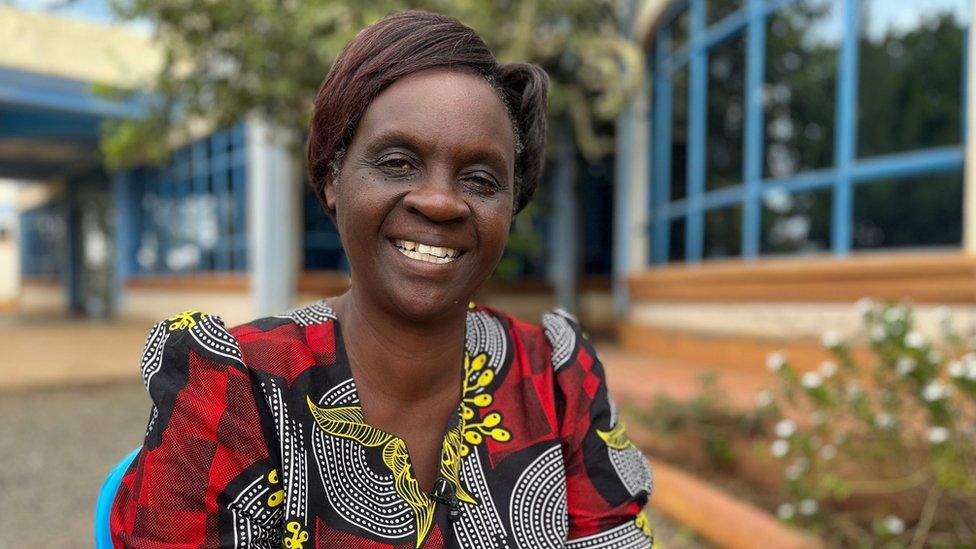
Rose is 54 and lives in a gated compound in a rural area a few hours from Eldoret with her husband.
Gill’s charity Chameleon Buddies, so-called for the reptile’s adaptable nature, has employed the pastoress as a translator for the week.
Rose is a powerful woman who can command the room with her passionate way of speaking.
She underwent a colostomy operation, where the bowel is diverted out onto the abdomen, in 2020.
She is honest about how hard she found it to come to terms with her stoma and her difficulty in understanding how to put on the bags.
“I wanted to run away,” Rose says, adding: “I never accepted it easily.
“I don’t know how to put [the bag] on. I don’t want to see the wound, I didn’t even want to look at myself.”
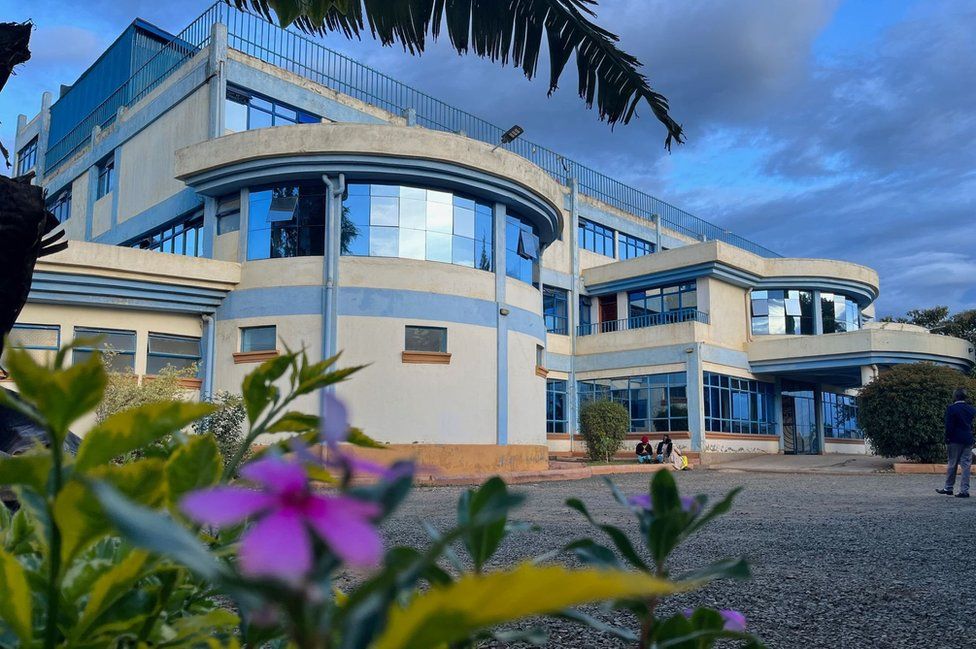
One of her daughters helped her with stoma care but when she had to return to college, Rose said she found life very tough and sometimes got through four stoma bags a day.
The bags are very expensive in Kenya.
Just one can cost up to 1,000 Kenyan shillings – which is around £5.
The average salary of an educated person there is 25,000 shillings per month, meaning the cost is prohibitive.
Gill found out that women in Kenya resort to using plastic bags, bread wrappers and sometimes tissue to deal with the waste from their stomas.
It means they then can suffer from isolation as they are too afraid to leave their homes or go to work.
In the UK, unwanted bags can’t be re-used and end up in landfill, so Gill has collected and donated enough to last the Gynocare hospital three years.
Meeting Gill and her team has had a hugely positive effect on Rose.
“When I came here and saw the story of Gill, I thought to myself ‘yes I can’,” Rose says.

Grace
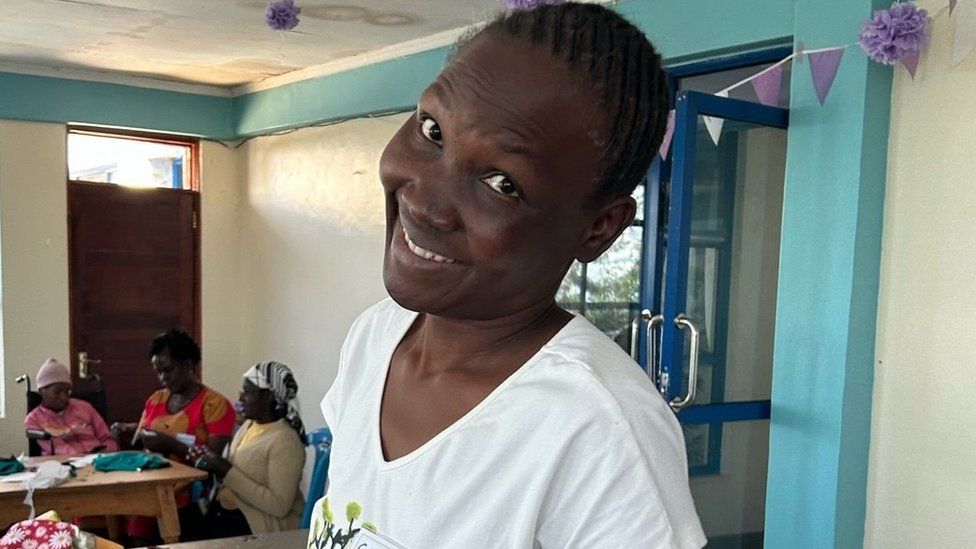
Grace is 37 and has four children.
She lives in Kisumu county and only had her colostomy operation a week before the workshop. She travelled for four hours, in considerable pain on public transport to get there.
Grace suffered a fistula in childbirth more than four years ago. She then also discovered she had colon cancer.
She says there is a huge stigma around fistulas and stomas in the Kenyan culture.
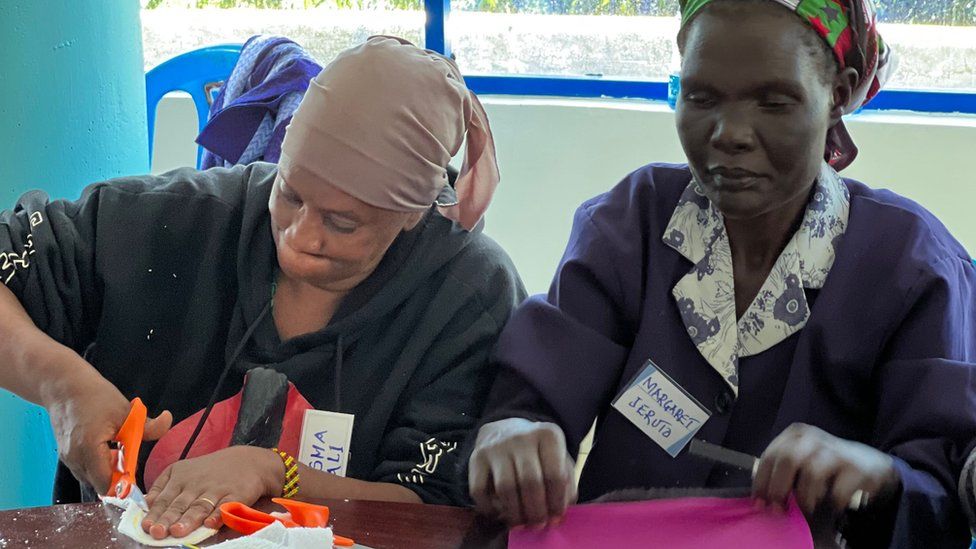
“Women are very, very embarrassed,” she said, adding: “Then we don’t come out to talk about it.
“Like me, I stayed with the fistula for four years and I did not talk to anyone. Back at home we are not that educated to talk about what we are going through. We fear that if you talk about it, some will laugh, some will hate, some will run.”
Grace says that going to the workshop and meeting other women means she no longer feels embarrassed.
“At first I thought that I was the only one having a colostomy bag,” Grace says, adding: “But they have encouraged me a lot.
“I can see my future ahead. I feel my future will be bright.”



